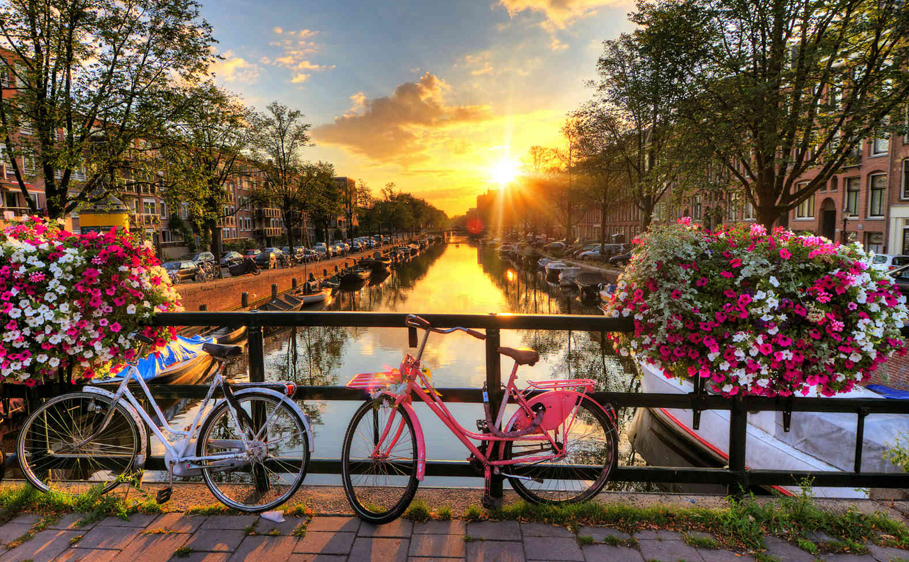
Emergency Numbers
The emergency number for police, fire or ambulance: 112
Non-emergency police number: 0900 8844
Gas or electricity emergencies and outages: 0800 9009 | www.gasenstroomstoringen.nl
Coast guard: 0900 0111 | www.kustwacht.nl
Roadside breakdown service: ANWB | 088 269 2222
Tourist medical service: touristdoctor.nl
National line for information on all medical services: 0900 1515 (24/7)
A list of hospitals and medical centres for The Netherlands: www.ziekenhuis.nl
Pharmacies: www.apotheek.nl
Lost and stolen
American Express: 020 504 8000
MasterCard: 0800 022 5821
VISA Card: 0800 022 3110
Schiphol airport lost property: 0900 0141
NS (rail) lost property: 0900 321 2100
Valid driving licence
You must bring a valid driving licence with you if you plan to drive a (rental) car or motorcycle in the Netherlands. Check if your driving licence is valid in the Netherlands.
Personal belongings
There are restrictions on what items are allowed as luggage. Additional rules apply to certain goods like paintings, furniture and products of animal origin. On the Customs website you can find an overview of products for which additional rules apply.
Medicines
Make sure you have enough of any medicines you use to last your whole trip, including some extra if you need or want to stay a little longer.
You are allowed to bring most medicines with you as long as you can show that they are for your own use. Make sure you read the rules and restrictions on bringing medicines with you. Strong painkillers and sedatives fall under the Opium Act. You can only bring these medicines with you to the Netherlands if you have an official medication certificate. You may also need to get this certificate legalised. Check with the local authorities in your country of departure what the rules are for taking medicines with you.
Illegal drugs
Do not bring illegal drugs with you to the Netherlands and do not take them with you when you leave. These are criminal offences.
Weapons
You need a licence or an exemption to bring weapons and ammunition – including replicas – with you to the Netherlands. Read more about travelling with weapons, ammunition and explosives on the Customs website.
Pets
Read the rules on bringing your pet with you to the Netherlands.
Emergency services
If you need the emergency services while you are in the Netherlands, dial 112. Save the number in your phone before your trip.
Vaccinations
You do not need to have any compulsory vaccinations before coming to the Netherlands.
Health insurance
If you need medical care while you are in the Netherlands, you can go to a doctor or a hospital. Check that your health or travel insurance covers these medical expenses.
Medicines
Make sure you have enough of any medicines you use to last your whole trip, including some extra if you need or want to stay a little longer.
You are allowed to bring most medicines with you as long as you can show that they are for your own use. Make sure you read the rules and restrictions on bringing in medicines. Strong painkillers and sedatives fall under the Opium Act. You can only bring these medicines with you to the Netherlands if you have an official medication certificate. You may also need to get this certificate legalised.
Taking out insurance
Take out good travel insurance that covers unforeseen expenses if you have to go home early due to an accident, illness or death of a close relative or family member.
Phone number
Save your insurer’s emergency assistance number in your phone.
Sufficient funds
Take sufficient funds with you. This means having enough money to deal with unforeseen situations, like a delayed flight. To be allowed to enter the Netherlands, you must have at least €55 per person per day for the duration of your stay. Citizens of Schengen or EU countries do not have to prove that they have this money, even if they enter the Netherlands from a non-EU country.
Paying in the Netherlands
The currency used in the Netherlands is the euro (€). You can exchange money in the Netherlands. Bring different payment methods with you besides cash. For example, a direct debit card or credit card.
If you are bringing more than €10,000 in cash with you to the Netherlands, you must declare this to Customs.
Debit card
Ask your bank if you can use your debit card in the Netherlands. Some banks only enable international payments at the customer’s request.
Phone number
Save your bank’s phone number in your phone, so that you can block your bank card if it is lost or stolen.
Mobile phone and roaming
Avoid high phone bills. Ask your provider how much they charge for making phone calls and using data in the Netherlands.
Public holidays
On public holidays, shops and museums have different hours or are closed. See the list of public holidays in the Netherlands.
Identification
In the Netherlands you must always carry a valid identity document with you. The authorities, such as the police, can ask for your identity document under the Compulsory Identification Act. So always have your passport or national ID card on your person.
The home front
Tell family and friends at home about your travel plans and make arrangements on how you will stay in touch or can be contacted.
Copies of important documents
Make photocopies of your travel documents, credit card and insurance papers, and save these in a secure place (online or offline).
Telephone
- Give family and friends at home your mobile phone’s IMEI number. In case of emergencies your provider will be able to trace or block your phone.
- Save your contact person’s phone number in case of emergency.